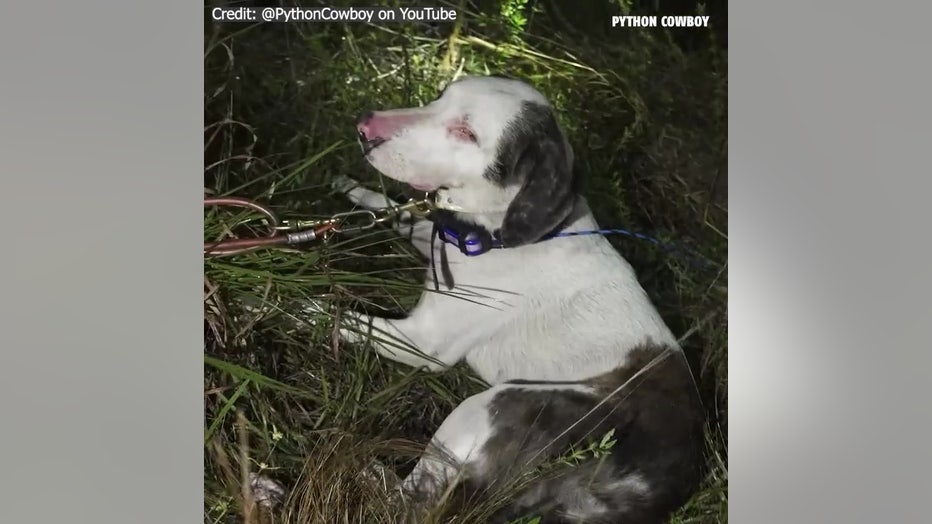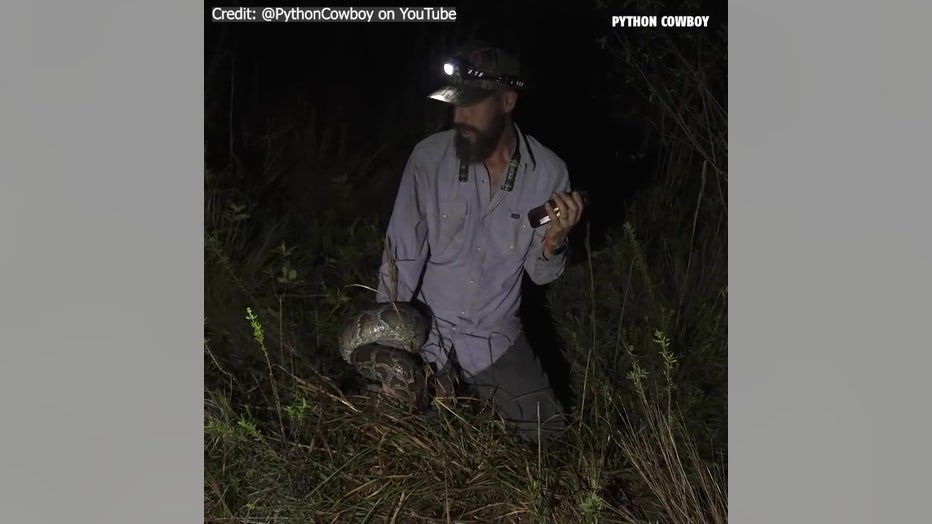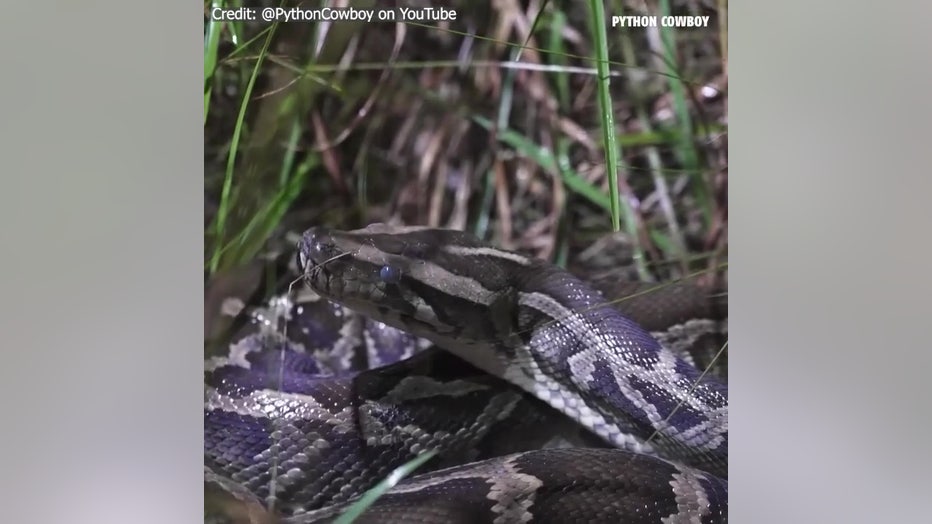Video: Blind dog finds blind python in Florida Everglades: ‘Another notch on her belt’

Blind dog finds blind python
The Python Cowboy's blind hunting dog Helen recently found a blind python while the pair were hunting in the Everglades.
NAPLES, Fla. - Whoever said a blind dog can't hunt has never met Helen. Not only can she hunt, but she recently found a blind python in the Florida Everglades.
Helen’s owner, Mike Kimmel, who is also known as the ‘Python Cowboy’, jokingly calls his beloved dog ‘Helen Killer’ and ‘Stevie Wonder’.
"All she’s got is that nose," Kimmel said. "She ain’t got any eyes and she’s barely got her ears, but she’s got that nose."
RELATED: 'Python Cowboy' wrangles invaders, with some help from man's best friend
Video posted to YouTube and other social media channels, shows Helen roaming through the grass searching for snakes, while her ‘brother’ Otto jealously sits in a nearby boat.

Kimmel says Helen's nose is more advanced than his other dogs. Image is courtesy of the Python Cowboy.
"On the boat and in the truck, Helen doesn’t know what to do, but once her feet hit that island, Helen goes right to work," Kimmel explained.
Kimmel, who owns several dogs, believes Helen’s nose is stronger than theirs because she lost her eyesight and barely has her hearing.
WATCH: Alligator spotted dragging massive Burmese python in Florida Everglades
"I am always super impressed when a dog can find a python. It is super difficult. I have a bunch of good dogs and only a few of them can catch pythons," Kimmel shared. "For a blind one to do it is even more impressive."
Earlier this month, Helen not only found a python, but she found one that was blind.

Mike Kimmel a.k.a the 'Python Cowboy' wrangles a blind snake his blind dog Helen found. Image is courtesy of the Python Cowboy.
"Blind Helen found a python just as blind as her," Kimel shared. "She went right up to it. I would have found it without her most likely, but I followed her up in here. You could tell she was smelling it, and she went right to it."
Kimmel added that Helen almost stepped on the snake, which almost bit her.
"Another notch on her belt," Kimmel declared as he praised his pooch.
Why do pythons go blind?
According to Kimmel, the snake, which was female, was in the process of shedding its skin and that’s why it couldn’t see. He said the snake’s skin goes over its eyes as protection during the process.
"It would be like putting a piece of paper over your eyes and trying to see through it," Kimmel said. "These snakes only have to deal with it here and there. Helen has to deal with it every day. She don’t {sic} feel sorry for them."

Kimmel said the female python Helen found was shedding and was blind because the skin was over her eyes. Image is courtesy of the Python Cowboy.
Kimmel said Helen got a little more experience under her belt, and he got another python out of the Everglades. He joked about how many ‘pretty’ products would be made from the snake's skin.
Florida's python problem
According to the Florida Fish and Wildlife Conservation Commission, Burmese pythons are not native to Florida and negatively impact native species.
The snakes are typically found in and around the Everglades ecosystem in South Florida, where they prey on birds, mammals, and other reptiles.
READ: Python found eating deer in Florida stuns scientists
Each year, the state hosts the Florida Python Challenge, a 10-day competition aimed at increasing awareness about invasive species and the threats they pose to Florida’s ecology.
However, the FWC says anyone may remove and humanely kill pythons and other nonnative reptiles at any time on private lands with landowner permission and on 32 FWC-managed lands throughout South Florida.
Since 2000, more than 22,000 wild Burmese pythons have been removed from the state and reported to the FWC.
The public can also help control invasive species by reporting nonnative snakes, tegus and monitor lizards to the FWC’s Invasive Species Hotline at 888-IVE-GOT1 (888-483-4681), and by reporting sightings of other nonnative fish and wildlife online at IveGot1.org or by downloading the free IveGot1 smartphone app. For more information, visit MyFWC.com/Nonnatives.
STAY CONNECTED WITH FOX 13 TAMPA:
- Download the FOX Local app for your smart TV
- Download FOX Local mobile app: Apple | Android
- Download the FOX 13 News app for breaking news alerts, latest headlines
- Download the SkyTower Radar app
- Sign up for FOX 13’s daily newsletter

